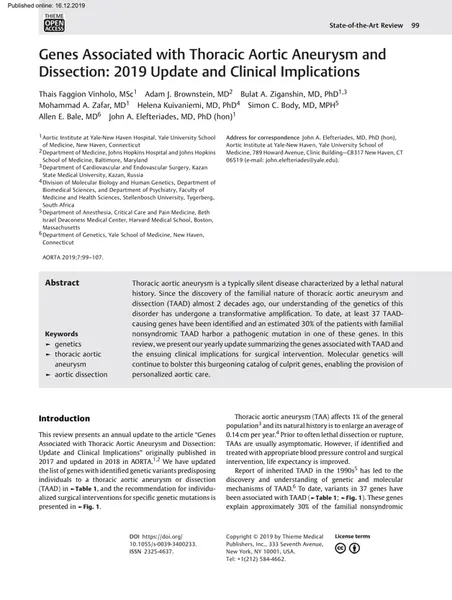Genetics Update lists 37 genes associated with Aortic Dissection
An update to the series of papers collating the latest genetics research on aortic dissection has been published. Following on two previous years’ work, this paper is the latest in a series by the team which includes the well-known aortic dissection expert, Dr John Elefteriades.

The December 2019 update recorded an increase in “Genes associated with Thoracic Aortic Aneurysm and Dissection” (TAAD) to a total of 37.
The authors say that “an estimated 30% of patients with familial non-syndromic TAAD”* are affected by a “mutation in one of these genes”. This is in addition to the proportion of aortic dissections caused by syndromic forms such as Marfans Syndrome, Loeys-Dietz, Ehlers-Danlos and Turner’s Syndrome. For these, the risk of an AD is already well-understood by clinicians.
Not all of those 30% will have suffered an aortic dissection, but the total proportion of those having had an AD or at risk of AD due to genetic causes is now approaching 50%. This emphasises the great importance of genetics in patients with aortic disease. This applies both in trying to prevent a dissection (e.g. if the finding is incidental), or after a dissection, where screening other members of the family must be considered.
The full paper lists the culprit genes. It also approaches the issue of the variation, due to genetic reasons, in prophylactic intervention diameter. It is a key collation of research which should be to hand for everyone dealing with aortic disease of potential genetic origin.
The paper is free to access.
(*A familial form of aortic disease is one where there is evidence of the disease running in families. Non-syndromic aortic disease means one not caused by the list of syndromes such as Marfans)
